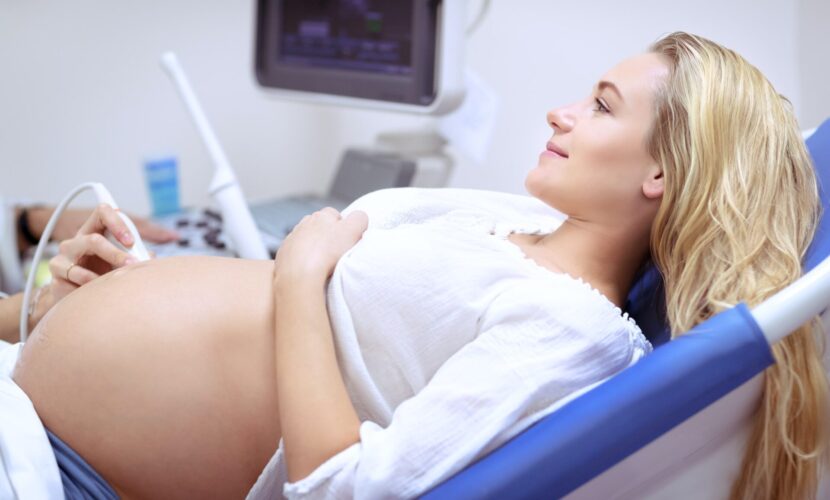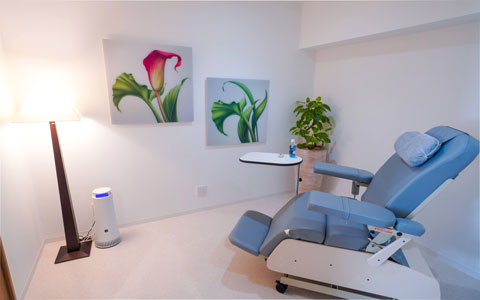Mesenchymal stem cell-derived exosomes, small extracellular vesicles secreted by cells in the body, have attracted attention for their various beneficial effects on health. Exosome infusion is believed to promote healing, reduce inflammation, and stimulate tissue regeneration.
In the field of obstetrics and gynecology, exosome therapy is considered an effective treatment for pregnant women and patients undergoing infertility treatment.
This therapy shows promise in reproductive medicine, with reports of improved egg quality, increased success rates in in vitro fertilization, improved embryo implantation rates, and reduced risk of pregnancy complications.
Furthermore, it is believed to have effects on gynecological disorders such as chronic pelvic pain and endometriosis.
Exosomes contain growth factors and signaling molecules that can promote tissue repair and regeneration, enhance blood flow, and stimulate the growth of new tissues, thus increasing the likelihood of successful pregnancy.
Additionally, exosomes have anti-inflammatory properties and can alleviate inflammation, which can be a cause of infertility.
Moreover, they have immunomodulatory effects, reducing the risk of rejection of transplanted embryos and improving the chances of successful pregnancy. Exosome therapy can be considered a beneficial treatment for pregnant women and patients undergoing infertility treatment.
However, long-term studies on the effects of exosome therapy are limited, and the long-term impact of treatment is still unknown.
Regarding pregnant women, there is a lack of clinical research on the safety and efficacy of exosome therapy, and its use during pregnancy is not recommended. It is unknown whether exosomes can affect fetal development.
For patients undergoing infertility treatment, exosome therapy is still experimental, and there are no clinical trials or FDA approvals supporting its use in infertility treatment.
Furthermore, some exosome formulations may contain growth factors that could stimulate ovarian tumor growth. Therefore, it is necessary to carefully consider the potential risks and benefits before undergoing exosome therapy.
In the treatment of gynecological disorders and infertility, exosome infusion plays a role in regulating cellular processes such as inflammation, immune response, and tissue repair.
For example, mesenchymal stem cell-derived exosomes have been shown in studies to promote endometrial regeneration and be beneficial for treating infertility-related conditions such as endometriosis and Asherman’s syndrome.
However, further large-scale clinical trials are needed to clarify the safety, efficacy, and long-term effects of exosome therapy. Exosome therapy is expected to be a new approach in the treatment of gynecological disorders and infertility, but research is still in the early stages.
The field of exosome research is rapidly evolving, and as our understanding of its therapeutic potential deepens, the scope of exosome infusion therapy in the treatment of gynecological disorders and infertility is expanding.
Customizing exosomes for each patient may enhance their effectiveness and minimize side effects.
Furthermore, it may be possible to develop exosomes tailored to the underlying causes of gynecological disorders and infertility. Further research is needed to validate the safety and efficacy of these treatments, but exosome therapy is a promising avenue for future development.
【References】1)Haraszti RA, Didiot MC, Sapp E, et al. High-resolution proteomic and lipidomic analysis of exosomes and microvesicles from different cell sources. J Extracell Vesicles. 2016;5:32570.
2)Lai RC, Tan SS, Teh BJ, et al. Proteolytic potential of the MSC exosome proteome: implications for an exosome-mediated delivery of therapeutic proteasome. Int J Proteomics. 2012;2012:971907.
3)Yang T, Martin P, Fogarty B, et al. Exosome delivered anticancer drugs across the blood-brain barrier for brain cancer therapy in Danio rerio. Pharm Res. 2015;32(6):2003-2014.
4)Théry, C., Witwer, K. W., Aikawa, E., Alcaraz, M. J., Anderson, JD., Andriantsitohaina, R., … & Zuba-Surma, E. K. (2018). Minimal information for studies of extracellular vesicles 2018 (MISEV2018): a position statement of the International Society for Extracellular Vesicles and update of the MISEV2014 guidelines. Journal of extracellular vesicles, 7(1), 1535750. https://doi.org/10.1080/20013078.2018.1535750
5)Phinney, D. G., & Pittenger, M. F. (2017). Concise review: MSC-derived exosomes for cell-free therapy. Stem cells, 35(4), 851-858. https://doi.org/10.1002/stem.2575
6)Santamaria, X., Cabanillas, S., Cervelló, I., Arbona, C., Raga, F., Ferro, J., … & Pellicer, A. (2018). Autologous cell therapy with CD133+ bone marrow-derived stem cells for refractory Asherman’s syndrome and endometrial atrophy: a pilot cohort study. Human reproduction, 33(5), 938-947. https://doi.org/10.1093/humrep/dey065
7)Gargett, C. E., Schwab, K. E., & Deane, J. A. (2016). Endometrial stem/progenitor cells: the first 10 years. Human reproduction update, 22(2), 137-163. https://doi.org/10.1093/humupd/dmv051






